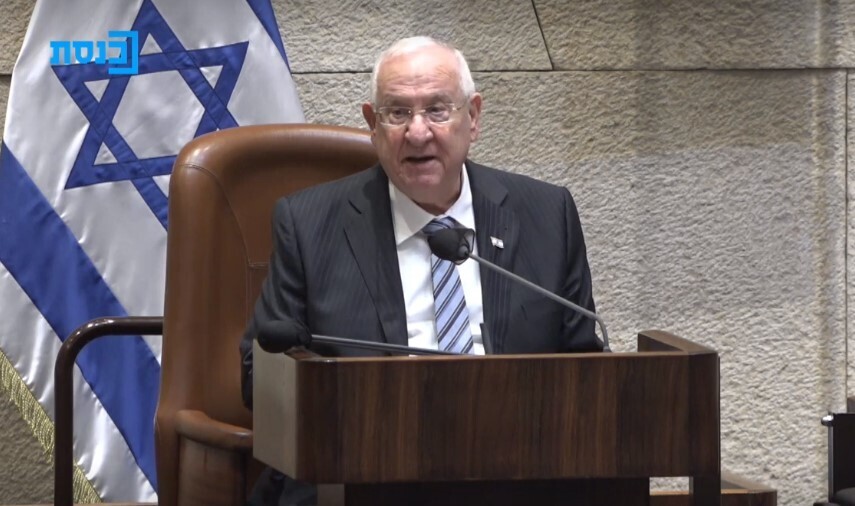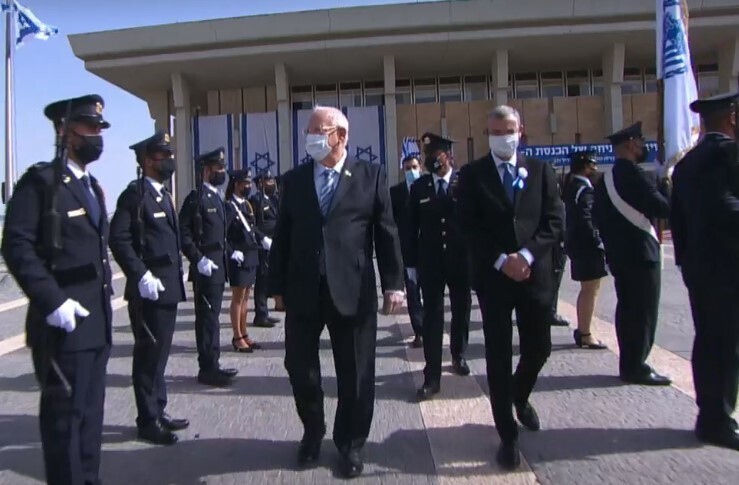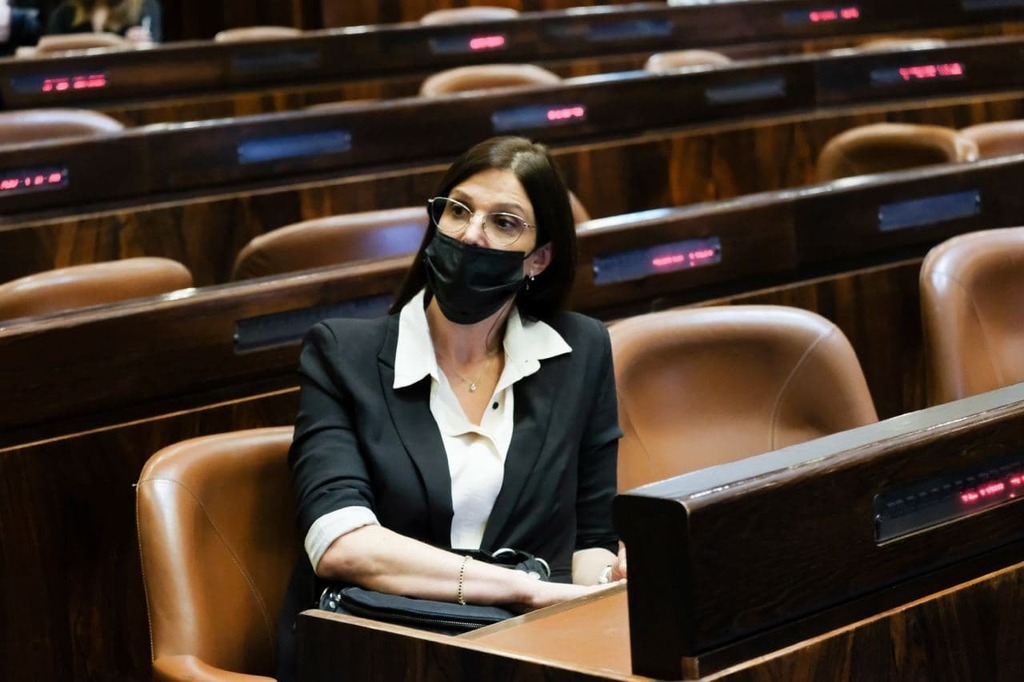Getting your Trinity Audio player ready...
President Reuven Rivlin reminded lawmakers of their duty to serve and unite the people of Israel in a blunt speech as the new Knesset was sworn in on Tuesday, just hours after he reluctantly tapped Prime Minister Benjamin Netanyahu to form the next government.
"The Israeli people look to you and expect each one of you to show leadership," Rivlin said.
"It is not something that is expected only of the Knesset member entrusted with forming a government or the new president you will elect, but of each one of you as representatives and leaders of the people," said the head of state whose seven-year term ends in the summer.
4 View gallery


President Reuven Rivlin addresses the new Knesset as it is sworn in, April 6, 2021
(Photo: Knesset Channel)
Rivlin also addressed the political impasse that has led to four elections in two years, urging lawmakers to embrace coexistence for the national good.
“If we are not able to find a new model of partnership that allows us to live together here in mutual respect and genuine shared commitment to each other, our national resilience will be in real jeopardy," he said.
4 View gallery


President Reuven Rivlin, left, and Knesset Speaker Yariv Levin walk past an honor guard as the new Knesset is sworn in, April 6, 2021
(Photo: Knesset Channel)
Like the same ceremony a little over one year ago, the festive yet socially distanced ceremony was held under coronavirus health mitigation regulations with lawmakers taking their oaths in groups of three and in the presence of one family member only.
The new parliament is beginning its term under a cloud of uncertainty after no political party appearing able to form a majority government and the departing coalition unable to promote critical legislation because of the disagreements and animosity between its members.
Nominating Netanyahu for the task, Rivlin said he was unsure anyone could form a viable coalition but was obliged to choose someone. He also cited Netanyahu's ongoing corruption trial, but conceded that the decision on whether someone under indictment could form a government was not his to make.
He ultimately named the Likud boss who with 52 recommendations had more than any other party leader.
Yamina founder Naftali Bennett told reporters at the entrance to the Knesset that he "wishes luck" to Netanyahu in forming new government.
"We will leave no stone unturned on a mission to prevent fifth elections, but without sacrificing our values," he said.
4 View gallery


Naftali Bennett arrives at the Knesset swearing-in ceremony, April 6, 2021
(Photo: Knesset)
New Hope leader Gideon Saar said no one could force his party to joining a government "where we can not maintain our values," a reference to pressure on the right-winger to support a coalition headed by centrist opposition leader Yair Lapid that included the left-wing Labor and Meretz parties.
There are 17 freshman legislators in the new Knesset, Israel's 24th since the creation of the state in 1948. Among them is new Yamina MK Abir Kara, a social activist who heads an organization of 180,000 small business owners critical of the outgoing government's handling of the economic crisis triggered by the pandemic.
Also making her parliamentary debut is Labor's Efrat Rayten, a renowned actress turned lawyer who represented the families of 10 teens killed in flash floods while on an outing with their pre-military academy in 2018. There are just 29 women in the new Knesset, with only the Labor Party having a female leader.
The more controversial new lawmakers include far-right extremist Itamar Ben-Gvir, who was elected on the Religious Zionist list after four previous failed attempts to enter parliament.
He was the acolyte of murdered racist Meir Kahane, whose bigoted platform saw him banned from the Knesset in 1988 after serving one term.
Ben-Gvir is an attorney who has represented extreme right-wing defendants facing charges of crimes motivated by ideology.
The Likud meanwhile is welcoming political activist and radio personality Distal Atbaryan, an avid Netanyahu supporter. The prime minister ensured her election by placing her at the top of his list of candidates. In her public appearances she had accused women's groups of ignoring sexual assault committed by Arabs and undocumented workers.
First published: 11:31, 04.06.21


